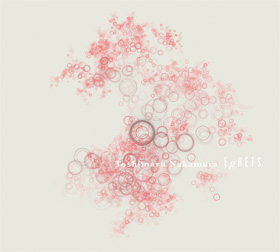



The animals most often found in Tokyo are dogs and for some reason, when I see one, I sometimes feel compelled to mimic their barks. I try to hide myself from sight before I begin the exercise. The dog naturally gets excited and tries to locate the whereabouts of this other barking dog. Or rather, it's looking for the person stupid enough to do such a silly thing and wishes instead to punish me. But, whatever the case, they're unlikely to be successful as dogs in Tokyo are usually leashed or kept within fenced lots. I know this isn't something a person with good taste would do, being mischievous, knowing full well that the dogs can't retaliate.
Sometimes however, they do find a way of paying me back. I like cawing as well. One day, I saw a crow in a tree peering down at me, and our eyes met so I cawed to it. I continued to walk a few meters, passed under the tree, when I felt a strong impact on the top of my head. I caught a glimpse of the crow flying back up to the tree. I guess it did a touch-and-go. Perhaps it also used its stout bill. I wondered what would've happened if I hadn't been wearing my hat?
There are also pigeons in the city. One day, two of them visited me while I was drinking a glass of white wine, watching the water flow, on the banks of Tamagawa river. I had some bread beside the glass and bottle so I assumed it was not the wine but the bread that the pigeons were interested in. One was running ahead of the other, the second keeping a precise distance of half its body length from the first. They appeared to me to be the boss and his henchman. The boss would say something like, "hey mister, please give us our share, we know you've got some good stuff". Then the henchman would follow, "yes, my boss is absolutely right, he knows everything". I actually vocalised the conversation, playing two or three roles myself, making fun of them. I had a good time but I still didn't want to give them the bread. Instead, I gave some pieces to the sparrows who were hesitating shyly behind the pigeons.
Although they don't come to residential areas, there are also some egrets to be found in Tokyo. We spot them sometimes around the Tamagawa river and its tributaries, the Nogawa and Sengawa rivers. They are completely white and a little bigger than the crows which, in contrast, are all black. They never beg food from people or directly search in the rubbish. They seem to keep their distance from us. At the water's edge, or in shallow waters, they gaze into the surface, standing completely still, then pluck something from beneath the water.
I think it was more than ten years ago when an egret flew across my sightline. Tears suddenly fell from my eyes and they continued to fall for some time. I suppose it was this flash of whiteness that made me cry. At the time I was somewhat weak and vulnerable because of problems in my personal life and, for some reason, the white focused the emotion in me.
Each breed of animal found in Tokyo might have a different reason to live here but, regardless, I'm grateful for their presence and proximity to us. I hope they never view us as hopeless, choosing to go away, leaving us to ourselves.
As you can see, I'm surrounded by the wilds of nature, but I think the real wilderness is lurking beneath our feet in the form of a potential earthquake which lies completely outside of our control. When a very strong one hits it will be a disaster, to say the least, but I rarely hear people say "well, let's get out of Japan as it is such a dangerous place and move to somewhere safer where there are no earthquakes". For some reason the majority of us stay put despite our awareness of the big one's inevitable arrival and our fear of suffering. Of course, we take precautions to make our lives just that little bit safer, but it seems that we are ready to accept the final judgement made upon us by nature.
In the Great Hanshin Earthquake of 1995, some of my relatives were personally impacted by the event. Although none that lived very close to the epicenter of the earthquake were severely injured or died, they must have experienced intense fear and suffered serious inconvenience. Amongst them, there was a family who ran a liquor shop. All of the bottles in the shop were smashed to the floor, everything wasted. The combined smell of the contents of those bottles hung in the air for several weeks. When I heard this news, the first few words I uttered were, "ah...what a waste..." I think someone like myself should suffer in life at least once.
Toshimaru Nakamura, March, 2010
東京の街で最も多く見かける動物は犬であり、僕はこの動物の鳴きまねをしたくなることがある。犬を見かけた時には、わざと姿を隠しておいてから一声啼いてやるのだ。犬は色めきだって、どこに犬がいるのかと探しまわる。そこで顔を出してやって、犬じゃありませんよと知らせてやる。あるいは犬は「どこに犬の声まねなどをするほどの馬鹿な人間がいるのだろう、懲らしめてやろう」と探しているのかもしれない。実はそうかも知れないな。それでも犬たちに僕を懲らしめることは出来ない。東京では犬たちは通常、首輪に鎖で繋がれているからだ。それを知っていてこんないたずらをするのだから、あまり趣味の良いことではないとは思う。
しっぺ返しを食らうこともある。からすの声まねも、犬の時と似た喉の使い方をするから、僕は得意である。ある日、樹の上にとまって僕を見下ろしているカラスと目が合ったので、一声啼いてやった。そのまま歩いて樹の下を数メートル通り過ぎたあたりで、頭のてっぺんに激しい衝撃を感じ、身をすくめながら見上げると、飛び去るカラスが視界の端に入った。きっとタッチ・アンド・ゴーをやったのだろう。もしかしたらあの大きなくちばしも使ったのかもしれない。帽子を被っていてよかった。
カラスと同じぐらい頻繁に見かける鳥に、ドバトというのがいる。多摩川の堤の上で、流れを見ながら白ワインを飲んでいたら、2羽のドバトがやってきた。パンも持っていたから、彼らの目当てはおそらくワインではなくそちらであっただろう。1羽が先んじて、もう1羽の方は先んじた1羽のちょうど半身分ほど斜め後方から追って小走りで来る。親分と子分のように見えた。親分が「ねえ旦那、出してくださいよ、持ってらっしゃるんでしょう?こっちはとっくに存じておりますよ」と言えば、子分の方が「その通りでございますよ、うちの親分は何しろ鼻が利くんですから」なんて調子なのだろう。実際に声に出して一人二役も三役もやってからかって楽しんだ。楽しませてもらったが、それにしてもそういう連中に食わせる物はないので、少し離れたところでもじもじしている雀にパンを投げてやって、ドバトを悔しがらせておいた。
住宅街にはあまり姿を現さないが、多摩川とその支流である野川や仙川の周辺で時おり見かける鳥に、白鷺がいる。真っ白で、逆に真っ黒なカラスよりも、少し大きな鳥だ。彼らは人に食べ物を無心したり、人が捨てたゴミを漁ったりはしない。人との関わりは間接的なものなのだろう。水辺や川の浅瀬で、しばらく静止して水面を見つめては川底をつつくというのを、熱心に交互にやっている。確か10年以上も前のことだったが、目の前をサギが飛んで横切った時に、その白さがまばゆくて涙が止まらなくなったことがある。僕はその頃、自分の身辺のことが理由で脆くなっていて、視覚的な刺激が大きな感情の動きをもたらしたのではないかと思う。
東京にいる動物たちは、それぞれの事情でここにいるのであろうが、とにかくここにいてくれることに感謝している。愛想を尽かすことなく、これからもそばにいてくれたら嬉しい。
このように豊かな大自然に囲まれて暮らしている僕だけれども、実は本当の大自然は足の下にあると思っている。地震というでっかいやつで、これもまた人間の意のままにはならない。特に大地震と呼ばれるぐらいのものがおこると、まあ控えめに言っても大変なことになる。ところが、「んじゃあ、こんな日本は危なくて怖いから、地震のないところに引っ越しちゃおうか」という声はあまり一般的ではない。まあ何となく、起こったら怖いなあ、痛いのは嫌だなあと思いつつも、我々の多くは依然としてここで暮らしている。いろいろとじたばたしていながら、最後の最後のところは自然にゆだねているように見える。
1995年の阪神淡路大震災では、僕の親戚も何人か被害にあった。震源に近い土地に住む彼らの中にも、大きなけがをした人や命を落とした人はいなかったと聞いたが、それにしても大変な恐怖と不便を被ったことと思う。そのうちには酒屋を営む家族があり、そこでは店頭の商品のすべてが床に落ちて瓶が割れてしまい、混ざり合ったいろいろな酒類の臭いは、その後何週間も消えなかったと言う。それを聞いて僕が最初に発した言葉は、「ああ、なんともったいない・・・」であった。僕のような人間は、一度こっぴどい目にあった方が良いのであろうと思う。
2010年3月 中村としまる
I was taking a walk in Shizuoka city and found myself at a point in a park, a huge area that, according to the information board, was once the site of a castle built by a warrior in the Muromachi era and which later became a place of retirement for the first Edo Shogun, Ieyasu Tokugawa. The castle building had been torn down centuries ago but its curse still seemed to me to be tremendous. It was raining down in the form of the heat and the sound of cicadas. The noise was so intense that it made my ears itch. The sound of their voices were noticeably different from the ones in Tokyo. In the first few seconds their chirr sounded like "die die die". Not so as to plead my case that I would love to live a little longer, but just because I was curious and wanted to see some of these insects for myself, I looked up into the branches of one of the large trees looming overhead, but I could not see a single cicada. Although I had glimpses of a few of them as they flew away, I could not see a single one that was chanting. I tried searching in another tree, yet still could not find one. Meanwhile, I had been somewhat blinded by the glare of the morning sky and my neck had begun to ache, so I gave up. I started walking again, thinking that there was something I had missed, or simply did not understand. Cicadas were crying or screaming, or whatever, at the top of their voices, yet it seemed as though they did not want to be seen. If they needed to hide themselves from their enemies, they'd be better off keeping quiet. It made no sense to me. They wanted to be heard but not seen? Oh … hey yes, I see … I get it.
Toshimaru Nakamura, July, 2008
陽はたったいま昇ったばかり。また一日、夏の或る日が始まるのだ。建物や道路などの人工構造物が前日の熱を蓄えていて、すでに暑い。いや、それら建造物は、前日には前々日の熱を残していたであろうから、そのようにたどっていくと、竣工相成った時からの熱の総量が、そばを通りかかる僕にまで祟っているように思えてくる。僕は静岡市に来ていて散歩をしていたのだが、そうこうするうち大きな城跡に作られた公園の前に立った。告知板には、城は室町時代に築かれ、時代が下って江戸時代の初期に、将軍職を退いて大御所となった徳川家康が住むために改築されたものだとある。変遷の末に上屋は既に無いが、祟りは深く大きい。祟りは熱でだけではなく蝉の声となって降り掛かってくる。それは耳のなかが痒くなるほどの音量で、うるさい。東京にもいるアブラゼミの通奏持続音より目立つのは、一定のリズムで鳴くクマゼミである。クマゼミという呼び名は、その後、地元の人に訊いて教えてもらった。これが『シェイシェイシェイシェイ・・・』と延々と続くのだが、鳴きはじめの辺りが『死ね死ね死ね死ね』と聞こえる。まあ言われなくてもそのうち死ぬんだけども、もうちょっと待ってほしい。と、そのように申し立ててやろうとしたわけではなく、ただ、あまり耳に馴染みの無い鳴き声だから、どんな格好をしているのかなと思って大きなケヤキの木を見上げた。ところが、どう目を凝らしても蝉を見つけられない。時折、木から飛び立っていく様を見ることは出来たのだけれども、木に留まって呪文を唱えているお姿は拝見できない。
明るい空を見上げて、逆光の木の暗がりに目を凝らしていたから、たいそう疲れてきた。そうこうするうちに首も痛くなったので、諦めて探すのを止した。事を中途で止したのだから、釈然としない気持ちが残った。蝉はあれだけの音量で鳴き声を発しておきながら、まるで巧みに姿を隠すようにしている。見つかりたくないのであれば、最初から音など出さなければ良いものを、敢えて音を隠しようの無いほどの音量で鳴らし散らしておきながら姿は見せない。そこが理屈にかなっていない。聴かれたいけれども、見られたくない。あ・・・・・・、何だ、そういうことか。わかりました。
2008年7月 中村としまる